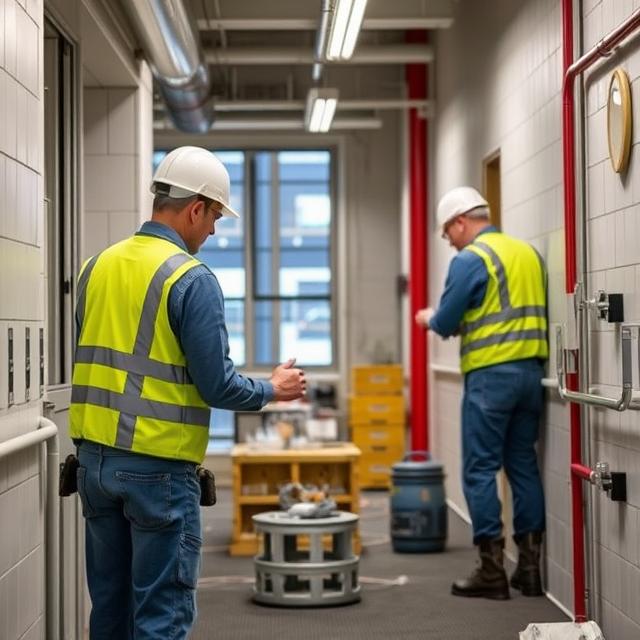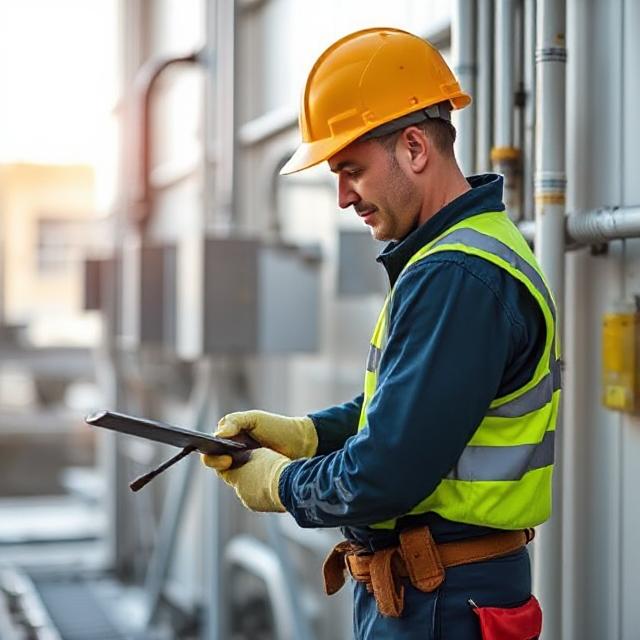A Sustainable Future of Facilities Management: With Tech & Trend!
Remodelling Facilities Management in a Changing World
The function
of facilities management is changing quickly in a city as fast-paced as Sydney.
Previously limited to upkeep and repairs, it now includes everything from
sustainability planning to smart building integration. The expectations of facilities management companies Sydney-wide are evolving along with the demands
placed on buildings, whether they are mixed-use, commercial, or residential.
This blog takes you through the possible future innovations and changes in facilities management, including emerging trends, technological advancements, and the growing emphasis on sustainable practices.
The Digital
Evolution of Facilities Management
Technology is at the heart of the transformation in facilities management. Modern facilities managers are using cutting-edge tools to increase productivity, such as cloud-based maintenance platforms and AI-driven building monitoring systems.
- Smart Sensors and IoT: In order to enable real-time responses and
predictive maintenance, buildings are becoming more and more outfitted
with sensors that track energy use, occupancy, air quality, and other
variables.
- Data-Driven Decisions: In order
to maximise operations, minimise downtime, and make economical choices,
facilities managers now mostly rely on analytics.
- Remote Management: Facility personnel can improve responsiveness by monitoring and managing operations remotely using mobile apps and remote access solutions.
These innovations are helping facilities management businesses in Sydney deliver safer, smarter, and more adaptable environments.
Sustainability
Is Now a Core Requirement
Sustainability is no longer optional — it’s expected. Buildings are under more pressure from owners, tenants, and regulators to fulfil environmental standards, and facilities management is essential to reaching these objectives.
- Energy Efficiency Programs: Managers are implementing LED upgrades, solar
integration, and HVAC optimisations to cut carbon footprints.
- Waste & Water Management: Emphasis is being placed on reducing landfill waste and
implementing water-saving systems.
- Green Certifications: Facilities managers are now involved in helping buildings attain credentials like NABERS and Green Star ratings.
Note: This eco-conscious shift is not just about compliance — it’s also about enhancing building performance and reducing operational costs.
The days of facility managers managing just one or two services are long gone. Today, the focus is on integrated facilities management, where a single provider handles multiple aspects, including cleaning, security, concierge, maintenance, and fire safety.
Why is this
approach gaining popularity?
- Improved Coordination: Integrated models reduce communication gaps and
improve workflow.
- Budget Savings: Facility
services in buildings help in overall cost-cutting.
- Streamlined Compliance: Managing compliance under one umbrella simplifies legal and safety responsibilities.
For large buildings and strata complexes across Sydney, A more unified and scalable management strategy is provided by integrated services.
Customisation
and User-Centric Services
One of the most significant shifts in facilities management Sydney-wide is the move towards personalised services tailored to the needs of occupants and clients. The emphasis is moving from reactive to proactive care, whether in residential dwellings or commercial office settings.
Some key
examples:
- Resident Portals: Offering real-time updates, feedback options, and service
requests.
- Custom Maintenance Schedules: Based on building usage patterns and seasonal needs.
- Community Engagement: Facilities managers now play a role in community-building through events, communication, and shared-space management.
This human-centric approach is helping facilities management evolve into a service that enhances the day-to-day life of residents and building users.
Compliance,
Safety, and Risk Management Are Getting Smarter
Facilities management providers in Sydney are stepping up safety procedures in response to tighter building rules and compliance frameworks that are emerging in Australia, especially in light of post-construction accidents in major cities.
- Digital Record Keeping: Automated tools are being used to track
inspections, certifications, and maintenance history.
- Risk Prevention Technologies: Fire detection, surveillance, and access control systems are more
advanced and integrated than ever.
- Staff Training: Teams are receiving ongoing education in WHS (work, health and safety) compliance and emergency procedures.
This proactive stance ensures not only the safety of occupants but also protects the value and legal standing of the property.
The Road
Ahead for Facilities Management in Sydney
The demands on Sydney's facilities management will only increase as buildings become more intelligent and environmentally friendly. From adopting sustainability and technology to enhancing tenant experiences and compliance, the industry is at a turning point.
Future-proofing
your assets requires know-how about what the modern facilities management
companies in Sydney have to offer, whether you're a corporate leader, strata
manager, or property owner. Those who adapt to these changes will lead the
way in creating efficient, safe, and sustainable environments for the years
ahead!



.jpg)

Comments
Post a Comment